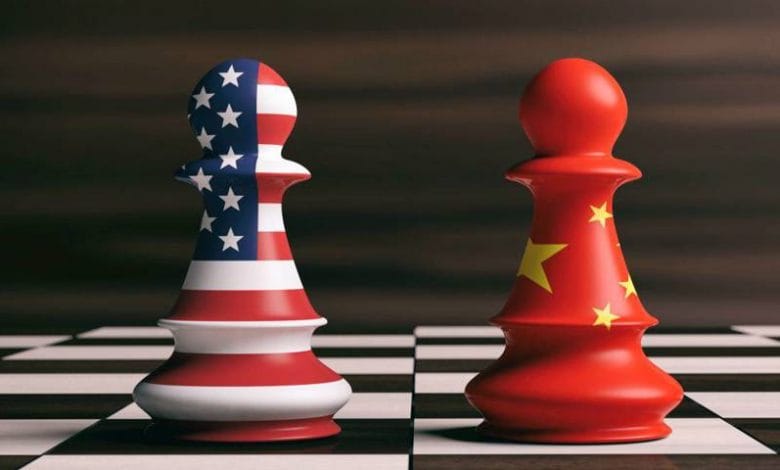
China Won’t Bury Us, Either
Garry Kasparov has a pithy way of summing up the past 18 months of tribulation. “China gave us the virus,” the chess and human-rights champion told me over a recent breakfast. “And the free world gave us the vaccines.”
You don’t have to subscribe to the lab-leak theory of the origins of the Covid-19 pandemic to acknowledge this: Had it not been for the cover-up that Chinese officials tried to orchestrate in the critical early days of the crisis, there might have been a chance for the virus to be contained. Instead, China’s government began with lies and has kept lying ever since, at the expense of public health everywhere. They’ve also sold the world’s poorer countries on a vaccine that doesn’t work too well.
The facts are worth bearing in mind as the Chinese Communist Party celebrates its 100th anniversary with a show of pageantry and power. Xi Jinping, the most militant and repressive Chinese leader since Mao Zedong, delivered a speech trumpeting “the great rejuvenation of the Chinese nation” while extolling the party’s total control over the country’s politics. He warned that those who tried to “bully, oppress or enslave” China would “crack their heads” on a “Great Wall of steel.”
In fact, nobody is trying to bully, oppress or enslave China. The century of humiliation is long over. This month marks the 50th anniversary of Henry Kissinger’s secret visit to Beijing, which initiated a long bipartisan American effort to help raise China from the depths into which Mao’s catastrophic leadership had sunk it. The effort succeeded in turning one of the world’s poorest countries into one of the richest.
The effort also failed.
Beijing did not leverage its growing economic wealth for the sake of greater political freedom. It did not use its entry into the so-called rules-based global order to play by the rules. It did not mean what it said when it promised Hong Kong “one country, two systems.” It could not be trusted to honor business and academic partnerships without stealing intellectual property on a massive scale. It has not turned its development schemes in vulnerable foreign countries, from Ecuador to Montenegro, into lasting foundations for mutual good will, rather than one-way exploitation.
Beijing’s unconstrained behavior gives it the appearance of strength. It’s a cliché that China’s rise is “unstoppable,” much as Germany’s supposedly was a little over a century ago. The corollary is that the world will simply have to acquiesce to its burgeoning list of demands, including its maritime claims to the South China Sea and reunification (if necessary, by force) with Taiwan.
But appearances of strength tend to obscure realities of weakness, hidden cracks behind imposing facades.
For Beijing, the crack is that the regime is based on lying. It isn’t just the historical lies, such as Xi’s omission in his speech of any mention of the Great Chinese Famine, the Cultural Revolution and other atrocities in which Mao killed as many as 80 million of his own citizens. Nor is it merely the political lies, such as Beijing’s aggressive propaganda campaign to hide human-rights atrocities against the Uyghurs of Xinjiang.
The real problem with the lying is that a regime that lies nonstop to others eventually lies to itself as well. As The Times’s Steven Lee Myers and Chris Buckley reported last year, local health officials in Wuhan “withheld information about cases from the national reporting system” for fear of incurring the central government’s wrath. Beijing learned of the outbreak only from whistle-blowers putting documents online. Much the same goes for other aspects of Chinese governance, from its manufactured economic data to its corrupted safety standards.
This is not a new problem. “The rulers of totalitarian countries wish, of course, to be truthfully informed, but time and again they fall prey, inevitably, to their own lies and suffer unexpected defeats,” the Polish philosopher Leszek Kolakowski wrote in 1983. “Entangled in a trap of their own making, they attempt awkward compromises between their own need for truthful information and the quasi-automatic operations of a system that produces lies for everyone, including the producers.”
How Beijing’s apparatus of lies will eventually bring the system down is impossible to predict. But there’s little question that it profoundly enfeebles the system as a whole. Truth, in the form of accurate information, is essential to good decision-making. Truth, in the form of political honesty, is essential to generating the social trust that is the basis of healthy societies. China’s regime lacks both.
The free world has its own huge problems with misinformation and dishonest politics. Yet we still have a sufficiently competitive marketplace of ideas that the truth soon finds its way in. And we still have sufficient regard for political honesty that we eventually threw the bum out. As for vaccines, we developed the most effective ones because we shared information openly, collaborated freely, competed fairly, tested honestly.
Xi Jinping may think that, one day, a disciplined and directed Chinese system will bury an aimless, unserious free world. Nikita Khrushchev once had a similar thought. Something to remember in this time of Western self-doubt.